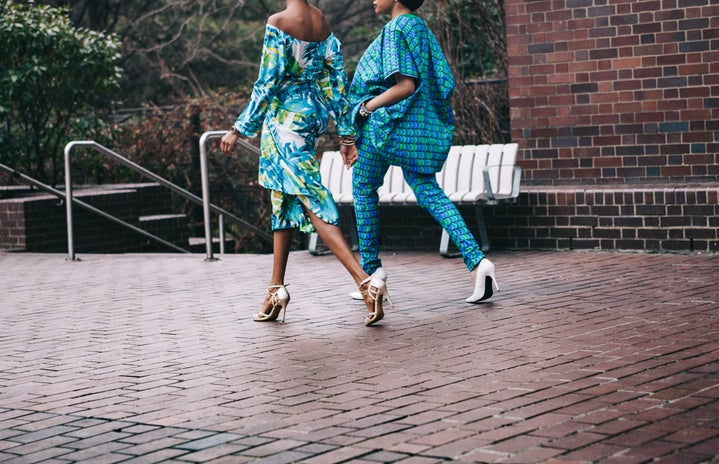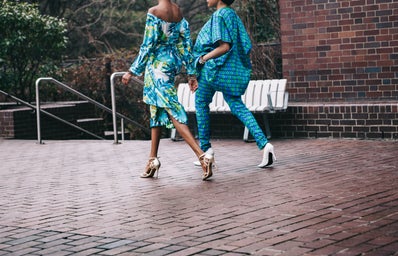Happy Pride! It’s that wonderful time of year where the LGBTQ community gets to celebrate ourselves and each other. The streets become filled with rainbows and memes on social media become very queer-centric, from dealers saying they’ll give queer people a discount to tweets saying if you haven’t figured out your identity yet, J.K. Rowling will assign you one shortly. We’re here, we’re queer, and we’re proud―right?
Well, technically, yes. But let’s think about it. How often do you see pink, purple, and blue pride flags? Or light pink, white, and light blue ones? How often do you hear biphobia within the queer community? How often do you actually hear trans people included in the queer community? Despite the name, “LGBTQ” bisexual and trans people are often excluded in pride celebrations. The fight for bisexual and transgender people recognition outside of the umbrella term “gay” has been going on for a long time, as has the fight for bisexual and transgender acceptance in the LGBTQ community. So let’s look at a little history, shall we?
The Stonewall Riots happened June 28, 1969, and lasted six days. Police raided the Stonewall Inn, a popular gay bar, which was a fairly regular occurrence. This time, though, the bar-goers decided enough was enough. Violent outbursts by both the police and the queer people in the bar led to police barricading themselves inside the bar, and protestors outside trying to light the bar on fire. The flames were put out fairly quickly, the police inside released, and the crowd dispersed. But the fire within the queer people who frequented the Stonewall Inn refused to be put out. Protests, sometimes attracting thousands of people, took place around New York over the next five days. We were done being silenced. The first pride was a riot.
Have you ever heard of Marsha P. Johnson? The black, bisexual, homeless, transgender, drag queen, sex worker who threw one of the first (possibly metaphorical) bricks at Stonewall, which has turned into Pride? She was 23 years old at the time of Stonewall, and played a major role in queer organizations being started, as well as openly defying laws that prevented her from being her authentic self. She lived a very marginalized life, dealing with various mental illnesses, being sexual assaulted at age five, being arrested over one hundred times, and constantly dealing with police brutality for a number of her salient identities (black, bisexual, transgender, homeless, sex worker). In 1970, a year after the Stonewall Riot, Johnson her friend Sylvia Rivera founded Street Transvestite Action Revolutionaries (STAR) to advocate for young transgender people, including housing, feeding, and clothing them. (The word transgender was not really used during Johnson’s time, so she identified as a transvestite. Today we don’t use the word “transvestite” because it invalidates the transition of a transgender person and dilutes it to the clothes someone decides to wear.) STAR turned into the Gay Liberation Front, which advocated for sexual liberation and attempted to align gay rights with other social movements.
Your answer is probably no. I didn’t know about her until this year, and I’m forgiving myself for it because queer history has been written and rewritten so many times, it’s difficult to really understand our history without doing some serious digging, but I’ll save my tangent on this for another article.
The first pride took place in 1970. One year after Stonewall. Today, pride is very commodified. Straight artists are being asked to perform at pride. Brands that don’t support the queer community slap a rainbow on something and sell it. Pride often becomes a party rather than an actual celebration of queer bodies. Bisexuals and transgender people are excluded. And why? How is that possible when the woman who played such an essential role in starting this for us was both transgender and bisexual?
Last year, when I was casually dating both a boy and a girl and didn’t want a serious relationship with either, my friend jokingly told me, “This is why people hate bisexuals.” I laughed it off. I don’t hold the comment against them. But the thinking is toxic. We can’t joke about things like that until it’s not seen as fact. When a bisexual girl can date a boy and not be asked, “So you’re straight now?,” then those jokes can be made. When large parts of the queer community stop deliberately excluding us for choosing to be in a relationship with a particular gender, then we can make those jokes.
With all the abortion laws and discussions happening recently, “activists” at Seattle University tried to start a poster campaign. I have a lot of problems with this poster campaign. First, they are only put in women’s bathrooms―we know the attempt to control our bodies is wrong. We aren’t the ones who need the reminder. Second, while I admittedly do love the graphics style, they only depict very feminine, light skinned women with curvy bodies. Lastly, (and my biggest gripe), the slogans–especially the one, “No uterus, no opinion!” This was funny when Rachel said it in Friends to Joey or whichever guy friend, but in a political sense, this phrase is exclusive. Not all women have the perfect curvy body. Not all women have long hair and wear dresses. Not all women have uteruses. If you claim you’re fighting for women’s rights but deliberately using language that excludes trans women, you are part of the problem.
I’m going to say it super bluntly: if you’re only an ally to cisgender gays and lesbians, stay home. If you use transphobic language in your everyday life, stay home. If you think bisexual people don’t belong in the LGBTQ community, stay home. If your pride celebrations don’t include bisexual and trans people, stay home. We don’t want you at pride.



